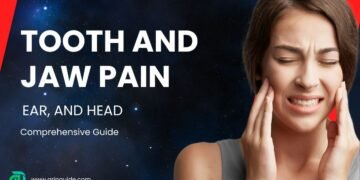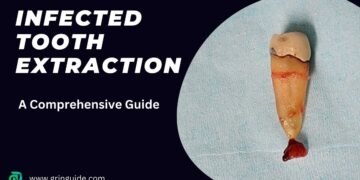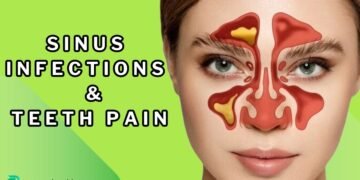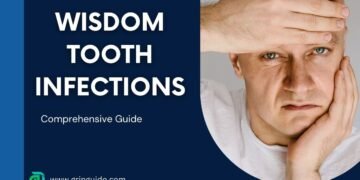Table of Contents
Imagine waking up in the middle of the night with a sharp, throbbing pain in the back of your mouth. You reach inside to feel a swollen, tender area where your wisdom tooth is trying to push through. The pain is unbearable, making it difficult to eat, speak, or even concentrate on anything else. This scenario is all too common for many people who experience wisdom tooth pain.
Wisdom teeth, also known as third molars, typically emerge in late adolescence or early adulthood. These teeth are the last to come in, often causing problems due to their size and position in the mouth. When there isn’t enough room for these teeth to fully erupt, they can become impacted, leading to pain, swelling, and potential infection.
9 Effective Home Remedies for Wisdom Tooth Pain Unbearable:
Certainly! Dealing with wisdom tooth pain can be challenging, but there are several home remedies that may provide relief. Remember that these remedies are temporary, and it’s essential to consult a dentist for proper evaluation and treatment. Here are some effective home remedies for unbearable wisdom tooth pain:
1. Saltwater Rinse:
Rinsing your mouth with warm saltwater can help promote healthy gums and kill harmful bacteria. Dissolve salt in warm water and swish it around your mouth regularly to soothe pain and fight inflammation.
2. Over-the-Counter Pain Relief Medications
If you are experiencing mild wisdom tooth pain, over-the-counter pain relief medications can provide temporary relief. Nonsteroidal anti-inflammatory drugs (NSAIDs) such as ibuprofen can help reduce inflammation and alleviate discomfort. However, it is important to consult with a dentist if the pain persists or worsens.
3. Clove Oil:
Clove oil has natural analgesic properties and can be an effective remedy for wisdom tooth pain. Soak a cotton ball in clove oil and place it directly on the affected tooth or gums. The oil will help numb the area and provide temporary relief.
However, it’s important to note that clove oil should be used sparingly, avoid applying neat clove oil directly to the gums and not swallowed, as it can cause stomach upset.
4. Garlic:
Crush or mince a garlic clove to release its potent chemicals. Mix it with aloe vera or olive oil and hold it against the painful wisdom tooth. Garlic has antiseptic and anti-inflammatory properties.
Remember to consult a dentist if the pain persists or worsens. They can provide professional advice and recommend appropriate treatment options.
5. Peppermint:
Peppermint leaves contain menthol, a natural cooling compound. Although evidence is not conclusive, peppermint may have pain-reducing effects. You can try peppermint tea or apply peppermint extract to painful gums.
6. Warm Compress
In addition to using ice packs, applying a warm compress to the affected area can also help manage wisdom tooth pain. The warmth can help increase blood flow to the area, which may reduce inflammation and provide relief. To make a warm compress, soak a clean cloth in warm water, wring out the excess, and gently apply it to the outside of the cheek near the painful tooth.
7. Onion:
Chewing on onion can reduce pain caused by wisdom teeth. Onions have antiseptic, antibacterial, and antimicrobial properties. Try chewing raw onion to relieve discomfort.
8. Oral Rinses
Using an oral rinse specifically designed for pain relief can also help manage wisdom tooth discomfort. These rinses often contain ingredients like benzocaine or lidocaine, which can provide temporary numbing and relief. Follow the instructions on the product packaging for best results.
9. Consult a Dentist
If the pain persists or worsens despite trying these home remedies, it is important to seek professional help. A dentist can evaluate the situation and determine the best course of action. They may recommend a prescription-strength pain reliever, antibiotics if there is an infection, or even extraction of the wisdom tooth if necessary.
Overall, managing wisdom tooth pain involves a combination of home remedies and professional guidance. By following these tips and seeking appropriate dental care, individuals can find relief from the discomfort and ensure their oral health remains in good condition.
Understanding the Causes of Wisdom Tooth Pain Unbearable

There are several reasons why wisdom tooth pain may occur. Let’s summarize the most important ones for you:
- impaction: which happens when the wisdom teeth do not have enough space to fully emerge. This can lead to the teeth becoming trapped or only partially coming in, causing pressure and pain. In some cases, the wisdom teeth may grow at an angle, pressing against the surrounding teeth and causing discomfort.
- inflammation and infection: When the teeth are partially erupted, it can create a flap of tissue that easily traps food and bacteria, leading to inflammation and infection known as pericoronitis.
This condition can cause intense pain, swelling, and difficulty opening the mouth fully. Infections can also spread to the surrounding teeth and gums, causing further complications if left untreated. - cavities or tooth decay: The location of the wisdom teeth at the back of the mouth makes them more difficult to clean properly, increasing the risk of plaque buildup and decay. When cavities form, they can cause sharp, throbbing pain that can radiate to other areas of the mouth.
- Gum Disease: Gum disease, also known as periodontal disease, can also contribute to wisdom tooth pain. When the wisdom teeth are impacted or partially erupted, it can create pockets in the gums where bacteria can accumulate. This can lead to gum inflammation and infection, causing pain and discomfort.
- Trauma: Wisdom tooth pain can also be caused by trauma to the mouth or jaw. Accidents or injuries that involve the mouth can result in damage to the wisdom teeth, leading to pain and swelling. In some cases, the trauma may also cause the wisdom teeth to become impacted or misaligned.
- Cysts or Tumors: In rare cases, wisdom tooth pain can be a result of cysts or tumors that develop around the impacted teeth. These growths can put pressure on the surrounding nerves and tissues, causing pain and discomfort.
It is important to address wisdom tooth pain promptly to prevent further complications. Ignoring the pain can lead to more severe infections, damage to neighboring teeth, and even the development of cysts or tumors. Therefore, if you are experiencing wisdom tooth pain, it is crucial to seek dental care as soon as possible.
Your dentist will evaluate your condition and may recommend a variety of treatment options. In some cases, the wisdom teeth may need to be extracted to alleviate the pain and prevent future problems. This procedure is typically done under local anesthesia to ensure your comfort during the process.
In conclusion, wisdom tooth pain can be caused by various factors, including impaction, infection, and tooth decay. Seeking prompt dental care is essential to prevent further complications and alleviate the pain. With the help of your dentist, you can find relief and maintain your oral health.
When to Seek Professional Help for Unbearable Wisdom Tooth Pain
While home remedies can provide temporary relief, it is important to seek professional help if the pain persists or worsens. A dentist can evaluate the situation, diagnose the cause of the pain, and recommend appropriate treatment options.
Here are some guidelines on when to consult a dentist or oral surgeon:
- Persistent Pain: If your wisdom tooth pain is persistent and severe, it’s essential to consult a dentist or oral surgeon. They can assess the situation and recommend appropriate treatment options, such as extraction or medication.
- Signs of Infection or Impaction: If you notice any of the following signs, make an emergency dental appointment:
- Increasing pain.
- Trouble opening your mouth.
- Red, swollen, tender gums
- Bleeding gums
- Jaw pain
- Bad breath
- Fever
They may recommend a range of treatments depending on the severity of the wisdom tooth problem.
1. Extraction
If the wisdom tooth is causing significant pain, infection, or other dental problems, the dentist may recommend extracting the tooth. Extraction can provide long-term relief from wisdom tooth pain and prevent further complications.
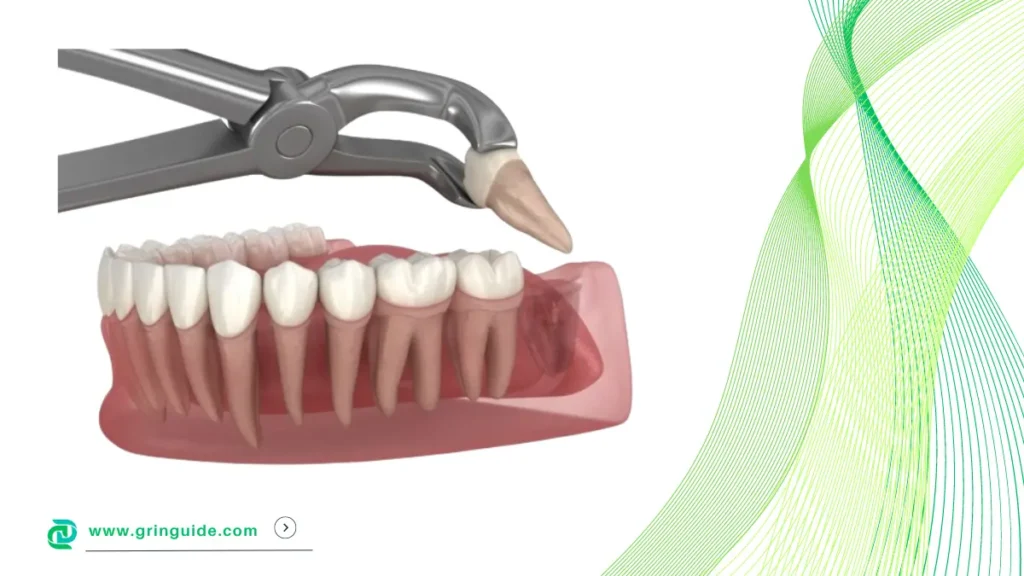
The dentist will first numb the area with a local anesthetic to minimize any discomfort during the procedure. Then, they will carefully remove the tooth, ensuring that the surrounding tissues are not damaged.
After the extraction, the dentist will provide instructions on how to care for the extraction site. It is essential to follow the dentist’s instructions and maintain good oral hygiene to prevent further complications and promote healing.
2. Referral to an Oral Surgeon
In more complex cases, the dentist may refer the patient to an oral surgeon. The oral surgeon can assess the situation and perform more specialized procedures if necessary.
This may include procedures such as surgical extraction, which is required when the tooth is impacted or not fully erupted. The oral surgeon has the expertise and specialized equipment to handle more complicated cases and can ensure the best possible outcome for the patient.
3. Antibiotics
If an infection is present, the dentist may prescribe antibiotics to help clear the infection. It is important to take the full course of antibiotics as prescribed, even if the pain subsides.
Antibiotics can help prevent the infection from spreading and causing more serious complications. The dentist will determine the appropriate type and dosage of antibiotics based on the specific situation.
It is important to remember that every situation is unique, and the treatment options may vary. The dentist will carefully evaluate the condition of the wisdom tooth and recommend the most appropriate treatment plan.
Seeking professional help in a timely manner can help alleviate the pain and prevent any further complications that may arise from an untreated wisdom tooth problem.
Common Complications Associated with Untreated Wisdom Teeth
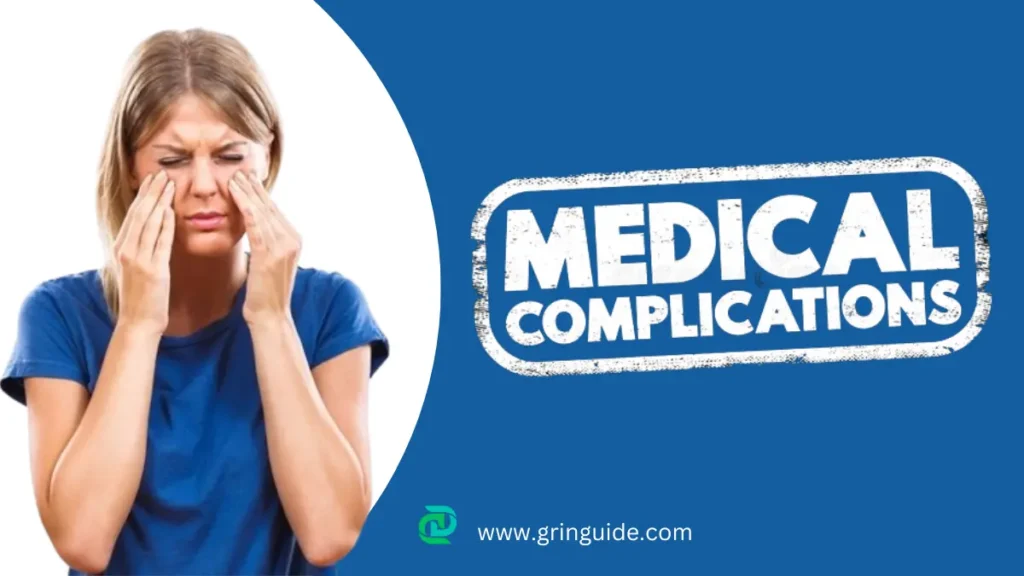
If left untreated, wisdom tooth pain can worsen over time and may lead to more serious complications such as abscesses, cysts, or damage to adjacent teeth. In some cases, impacted wisdom teeth may need to be extracted to alleviate the pain and prevent further problems.
Let’s explore them:
- Infection or Gum Disease (Periodontal Disease): Impacted wisdom teeth can increase the risk of gum disease. Bacteria can accumulate around the partially erupted tooth, leading to inflammation and infection.
- Damage to Other Teeth: Impacted wisdom teeth can push against adjacent teeth, potentially damaging them. The second molar is particularly at risk. This pressure may also raise the risk of infection in the affected area.
- orthodontic issues: Wisdom teeth can exert pressure on neighboring teeth, causing them to shift or become misaligned. This can lead to an uneven bite and long-term orthodontic issues.
- Trapping Food and Debris: Partially erupted wisdom teeth can create pockets where food particles and debris get trapped. This can lead to gum inflammation and infection.
- Tooth Decay: If a wisdom tooth partially emerges through the gums, it becomes challenging to clean properly. This can result in tooth decay.
- Pain: Wisdom teeth that remain impacted can cause persistent pain. The pressure and inflammation can be uncomfortable and affect your quality of life.
- Systemic Health Risks: Untreated dental issues have been associated with increased risks of heart disease, stroke, and other systemic health problems.
Remember, if you experience any discomfort related to your wisdom teeth, consult a dentist promptly. They can assess the situation and recommend appropriate treatment options.
Preventing Future Wisdom Tooth Pain
By following these preventive measures, you can minimize the risk of wisdom tooth pain and maintain optimal oral health. However, it is important to remember that each individual’s dental needs may vary, and consulting with a dentist is crucial for personalized advice and guidance.
1. Managing Stress
Stress can have a negative impact on oral health, including the development of wisdom tooth pain. When you are stressed, you may clench or grind your teeth, putting pressure on the jaw and potentially causing pain. Finding healthy ways to manage stress, such as practicing relaxation techniques or engaging in regular exercise, can help prevent or alleviate wisdom tooth pain.
2. Proper Oral Hygiene
Maintaining good oral hygiene is crucial when dealing with wisdom tooth pain. Brush your teeth gently, paying extra attention to the area around the affected tooth.
Use a soft-bristled toothbrush and a toothpaste specifically formulated for sensitive teeth. Additionally, rinse your mouth with an antibacterial mouthwash to help prevent infection and reduce inflammation.
3. Proper Diet and Nutrition
What you eat can also play a role in preventing wisdom tooth pain. A diet rich in nutrients, especially calcium and vitamin D, can help promote healthy teeth and gums. Incorporate foods like dairy products, leafy greens, and fish into your meals to support strong dental health.
4. Avoiding Tobacco and Alcohol
Using tobacco products and consuming excessive amounts of alcohol can increase the risk of dental problems, including wisdom tooth pain. Both tobacco and alcohol can irritate the gums and contribute to gum disease, which can exacerbate wisdom tooth pain.
Quitting tobacco and moderating alcohol consumption can help reduce the likelihood of experiencing wisdom tooth pain.
5. Regular dental check-ups
Regular dental check-ups can also help identify and address any potential issues with the wisdom teeth before they cause significant pain or discomfort.
Summary
In conclusion, wisdom tooth pain can be unbearable and debilitating for many individuals. Understanding the causes and potential complications of this pain is crucial in seeking timely treatment and relief. If you are experiencing intense wisdom tooth pain, don’t hesitate to consult with a dental professional to address the issue before it escalates.
FAQs
-
How can I manage wisdom teeth pain at home?
Home remedies may include saltwater rinses, applying cold compresses, using clove oil, and over-the-counter pain relievers. However, these provide temporary relief, and it’s important to consult a dentist for persistent pain.
-
What are the symptoms of wisdom teeth pain?
Symptoms include jaw pain, difficulty opening the mouth, swelling, and in some cases, signs of impaction or infection. If you experience worsening pain or trouble opening your mouth, seek emergency dental care.
-
When should I see a dentist for wisdom teeth pain?
You should see a dentist if the pain persists for more than a day or two, if you have pain when biting, red gums, fever, trouble breathing or swallowing, swelling, or foul-tasting discharge. These could be signs of a more serious condition.
-
Can wisdom teeth be removed to prevent pain?
Yes, if wisdom teeth are causing pain or other dental problems, they are often removed. This is a common procedure to prevent further issues such as damage to other teeth, infections, and misalignment.
-
Why do wisdom teeth cause pain?
Wisdom teeth can cause pain due to eruption (coming through the gum), impaction (aligning incorrectly and pushing against another tooth), decay, infection, or complications after extraction.

